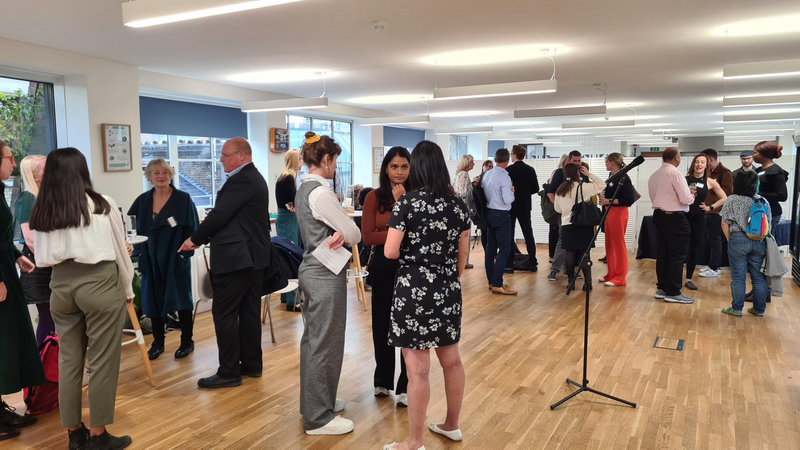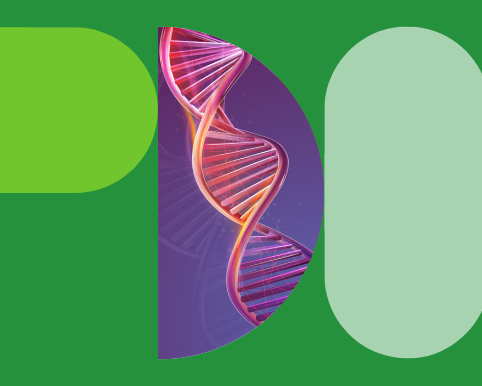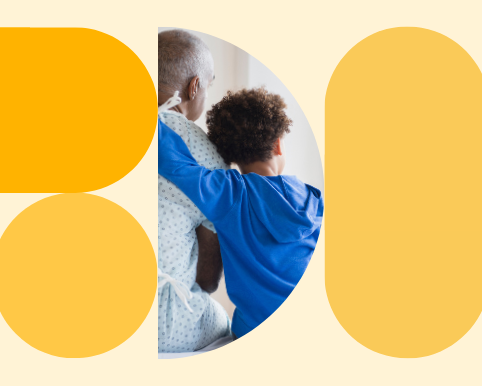Roundtable wrap up: How genomics can help close the gap in cancer inequalities
By Diverse Data team on
In late September, the Diverse Data initiative convened a conversation about the place and value of genomics to tackle cancer inequalities. Attended by fourteen representatives from charities, patient organisations, funders and government, the discussion topics ranged from the greatest potential benefits of using genomics in cancer care, through to the trickiest challenges, most likely obstacles, and everything in between. Important considerations were brought to light, and guiding suggestions were made about how to move forward from here. As a follow up, a technical policy report will be circulated highlighting the key discussion points and actionable next steps.
What are the inequalities associated with cancer?
Before delving into the ideas discussed at the Inequalities in Cancer: Opportunities for Genomics roundtable, it is important to understand why this conversation was necessary. Latest data shows that the NHS is under increased pressure this winter as the number of people waiting treatment in England has surpassed 7 million. As well, 72.9% of patients received their first cancer treatment within two months after their initial appointment with a consultant.
A report produced by Cancer Research UK in 2020 found that 30,000 extra cases of cancer in the UK can be attributed to social and financial deprivation. Additionally, survival rates were found to be worse for the most deprived groups, are more likely to be diagnosed at a later stage for certain cancer types, and cancer services that are inaccessible. This report also found that the number of people who take part in cancer screening varies significantly depending on where people live. Lifestyle factors associated with cancer, such as smoking or obesity, were also found to be more common amongst socially and financially deprived groups.
These disparities aren't just observed in patient communities, but also with those involved in the research, both as researchers as well as participants in trials studies. This can often prevent the benefits of new findings in cancer research being shared equitably across patient groups.
As those with cancer attempt to access care, they journey across numerous stages of a cancer pathway. These range from diagnosis, all the way through to receiving treatment and follow up care.
Unfortunately, however, every stage of this cancer pathway sees levels of inequality, which inadvertently contributes to higher incidence rates and poorer health outcomes for some population groups more than others. Factors such as the social determinants of health, including socioeconomic status, education, access to healthcare, and geographical location, can all affect the care that a patient receives.
In addition to this, cancer inequalities also exist between ethnic, cultural, and religious groups. Historical tendencies of the health services to neglect and exploit certain communities has left behind a legacy of mistrust. Individuals belonging to marginalised groups may be reluctant to seek medical care, reducing the probability of a timely cancer diagnosis.
Further to this, it is not uncommon for diagnostic practices, medical equipment, and drugs used in treatment to be less effective for individuals of non-European ancestry. This owing to the fact that development and testing of these is often conducted exclusively on White individuals of European descent. In line with this, various tests for cancer diagnosis may be less effective on Black patients. This may further contribute to a long diagnosis time, ultimately adding to the racial disparity in cancer outcomes.
Individuals belonging to more than one vulnerable group are particularly susceptible to poor cancer outcomes, it is therefore vital that intersectionality is considered in our approach to cancer care. The role of genomics is important to explore here, so that investment may target the most valuable areas of focus and yield the greatest positive impact.
Opportunities for genomics to address cancer inequalities: A rundown of the event
Genomics England hosted representatives from fourteen different organisations (listed below), to discuss the fundamental question; How could genomics be used to reduce the disparity in cancer outcomes? This event came as a result of having multiple conversations across the ecosystem, which highlighted the importance of bringing the community together to discuss common challenges and facilitate knowledge sharing. The conversation took contributions from all who were at the table, allowing for a discussion with diverse and cross-organizational perspectives.
Organisations in Attendance: |
Dept of Digital Health Innovation, WHO |
Medical Research Council |
Macmillan Cancer Support |
Prostate Cancer UK |
Breast Cancer Now |
National Cancer Research Institute |
Blood Cancer UK |
Prostate Cancer Research |
Department of Health and Social Care |
Office for Life Sciences |
BME Cancer Communities |
Race Equality Foundation |
Cancer Research UK |
Genomics England |
What was discussed?
Genomics could be used to identify which cancer inequalities are due to biological differences, and which are due to social, cultural and economic factors. The roundtable conversation centred around how this idea could be set into motion, and what the themes of focus should be in order to implement this. Three key themes surfaced; Trust, Data Linkage, and Personalised Medicine.
1) Trust was agreed to be a non-negotiable foundation for using genomics in cancer care. All patients must be confident that their genomic data will be used by the right people and for the right purpose, regardless of ancestry and socioeconomic status.
2) Data Linkage means bringing together information from multiple different sources. The roundtable agreed that genomic data will provide the most benefits when linked with clinical data as well as other pertinent details such as ethnicity, familial history, and socioeconomic indicators. This way, it may be possible to identify which cancer disparities are genetic, and which are due to other external factors.
3) Personalised Medicine refers to treatment that has been tailored specifically to match the needs of an individual patient. Genomics could be used to identify genetic factors that influence how a patient responds to medicine. From this, precise personal treatment plans could be created, ultimately resulting in better patient outcomes.
The take-home message
From this Inequalities in Cancer: Opportunities for Genomics roundtable, several points of guidance emerged that could be interesting to explore. These include: collecting data from a diverse group of people, establishing a diverse and well-equipped workforce, research collaboration and funding, and attaining transparency and patient involvement. Collectively, these guard-rails may allow for genomics to be successfully introduced into cancer care practices, and ultimately, for the disparity in cancer health outcomes to be reduced.
Evidence from genomic data could play an essential role in driving change. Trust, data linkage, and personalised medicine will serve as fundamental pillars in allowing genomics to make a positive impact. This roundtable discussion represents an important step in using genomics to reducing cancer inequalities.
Innovations to address cancer inequalities
After the roundtable, we had an inspiring evening as over 40 innovators, clinicians, researchers, and patients came together to discuss how we can reduce disparities in cancer research and care. Keynote talks were delivered by Dr. Bola Owolabi, Director of Inequalities for NHS England and NHS Improvement, and Ash Rishi, CEO of Couch Health, who both shed light on the importance of diversity.
The Diverse Data initiative is keen to continue convening the community at events both online and in-person, so if you’re interested in learning more about the programme, don’t hesitate to reach out at [email protected].


